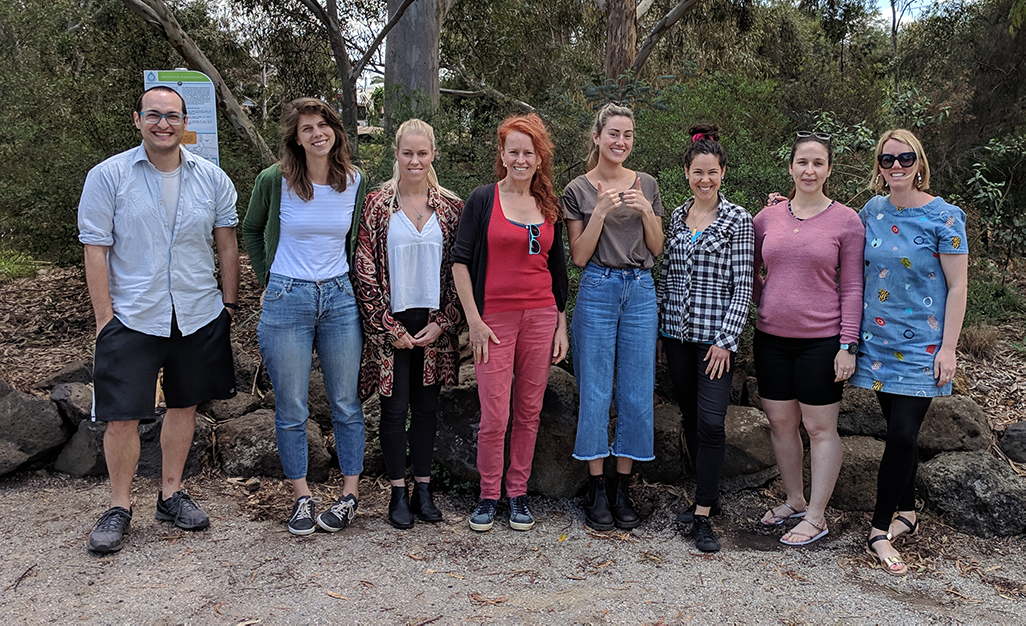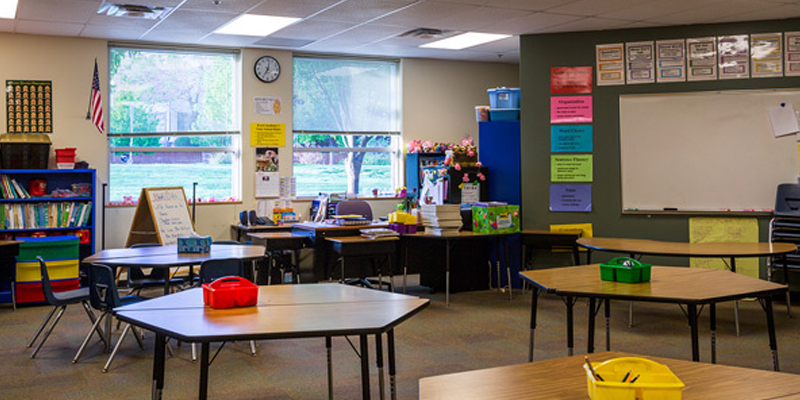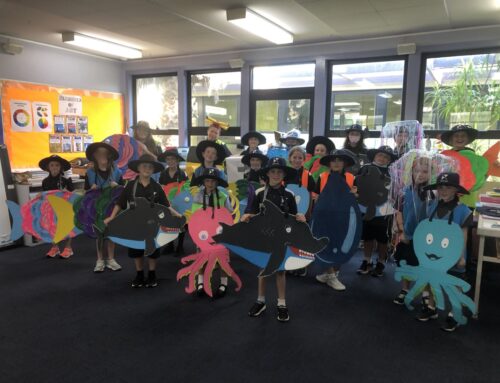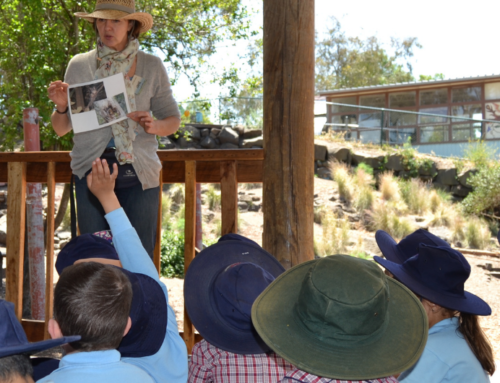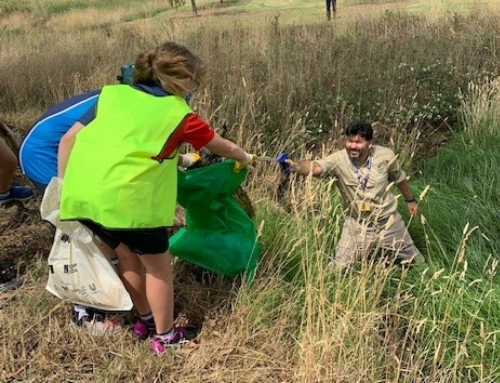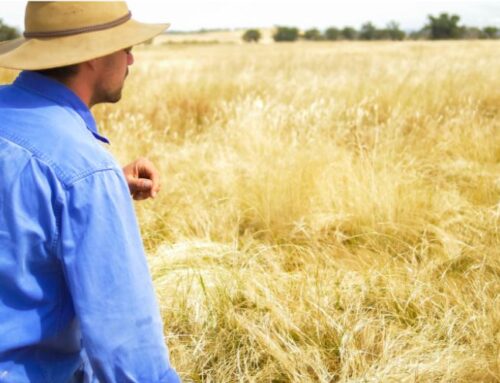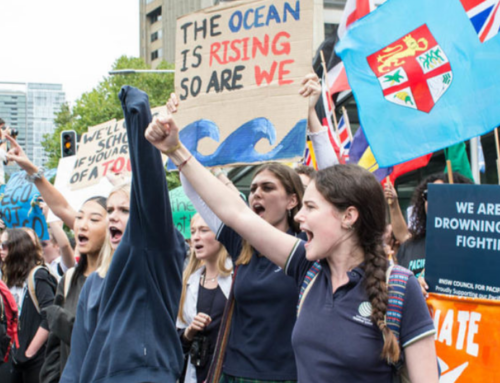By Michelle Sanahon
Outreach Education Communications Manager
The last month has been a busy time with climate change action hitting the streets in over 110 cities and towns all over the world. The School Strike 4 Climate on September 20 attracted an estimated 150,000 people in Melbourne, 300,000 across the country, and over 4 million worldwide. Students around the globe walked out of school to march for their future.
It was one of the nation’s largest rallies in history. Scientist Tim Flannery likened it to the 1854 Eureka rebellion, “Rebellions happen when governments fail their people and that’s what we’re seeing right now — a rebellion because government has failed its people.”
Bob Brown, former Greens Leader, said it was bigger than the Franklin River dam protests in the 1980s, one of the greatest victories of the Australian environment movement.
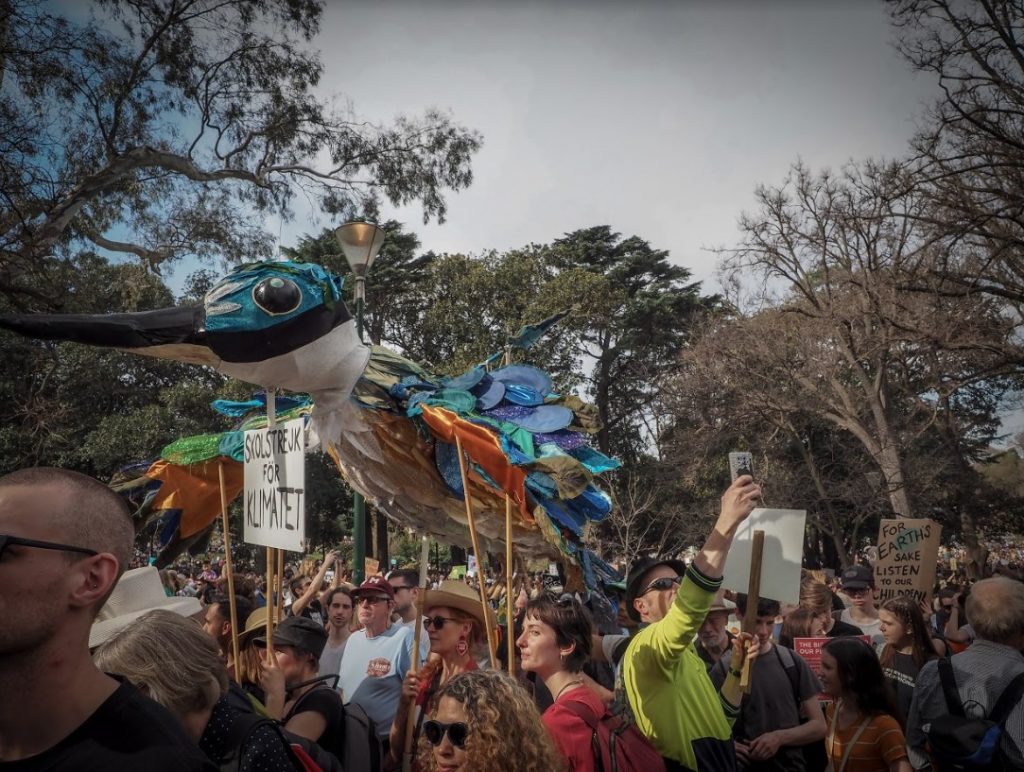
The infamous CERES Kingfisher at the School Strike 4 Climate on September 20. Image credit: Katie Johnston, CERES
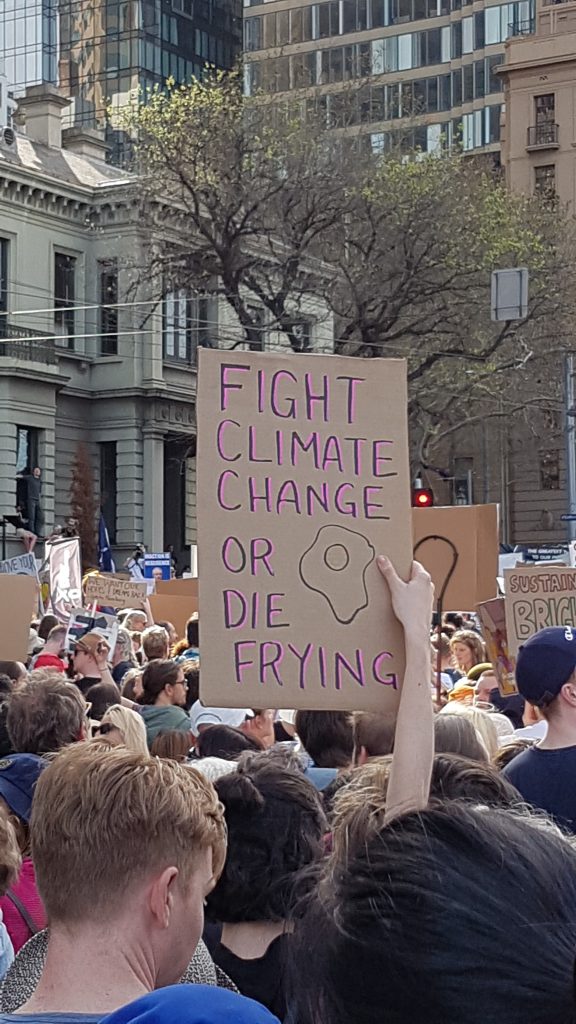
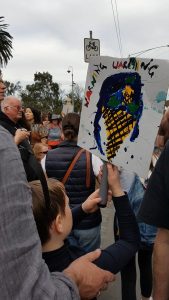
CERES joined more than 3,000 Australian and global businesses and organisations in signing onto Not Business as Usual, an alliance who pledged to support their employees to participate in striking with the students on Sept 20.
Along with the students, the mass of Australian protestors were striking for the Federal Government to commit to a target of net zero carbon emissions by 2030 and a transition to 100 per cent renewable energy.
Last week, from Oct 7 – 14, Extinction Rebellion, a global environmental movement whose core strategy is mass disruption of city centres through nonviolent civil disobedience, did just that. In Melbourne, activists danced and marched on major streets in the CBD for a week, causing traffic and attention to raise awareness about climate change, and have their messages and demands heard.
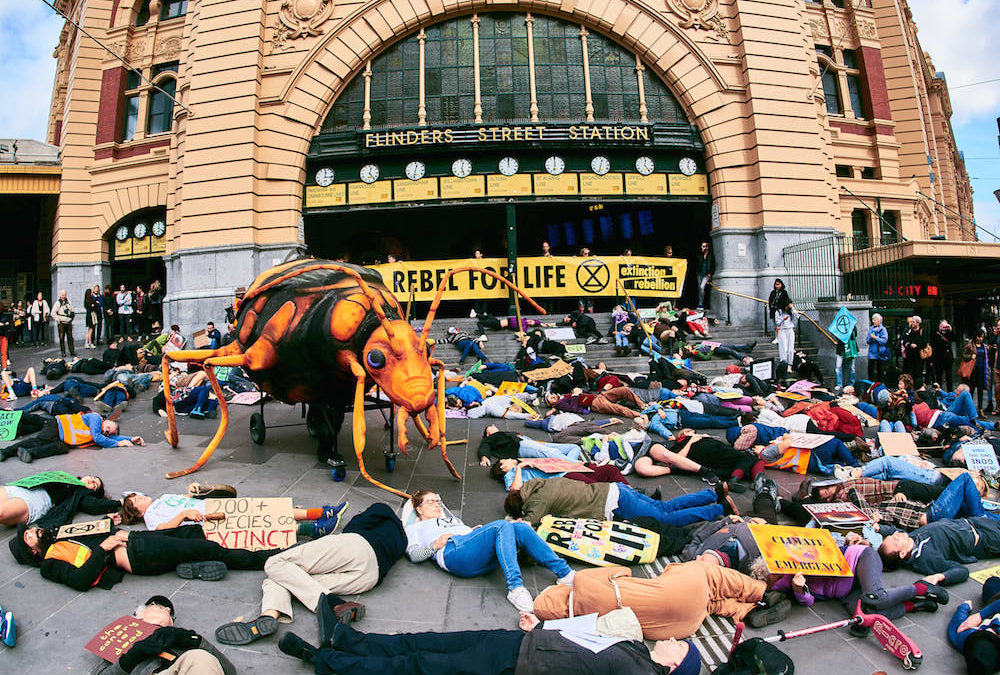
Extinction Rebellion activists outside Flinders Street station. Image credit: Extinction Rebellion Victoria
The world’s eyes have currently been spotlighted on climate change action, but how effective are these strikes and rallies?
According to a recent study, Predicting climate change risk perception and willingness to act, it is suggested that striking can promote the psychological factors most important for fighting against climate change. Some of the highlights of the research found that
- Affect and response efficacy were the strongest predictors of risk perception and willingness, and
- Prescriptive norms and free-market ideology were strong predictors of willingness.
With this in mind, it can be said that attending a strike would increase the effectiveness of the strike for yourself and those around you, and inviting family and friends to support you would encourage the social norms around climate change action.
The following points have been suggested by a Vice article on how you can make your climate activism have an impact:
- next time you strike, find a group to strike with rather than going it alone
- identify the politicians you can pressure in your own backyard
- link your local action to a wider revolutionary demand
- radicalise your parents
We need to band together to get our messages across. The bigger the numbers the more effective and greater pressure there is on Government to act!
* * * * * * * * *

Teenage environmental activist Greta Thunberg delivers an emotional speech to the UN. Image credit: Reuters
Since the Sept 20 climate action strikes, Swedish teenage environmental activist Greta Thunberg, who pioneered the School Strike 4 Climate rallies, delivered an emotional speech at the UN Climate Action Summit in NY, attacking world leaders for not doing enough to curb greenhouse gas emissions to halt climate change.
"The eyes of all future generations are upon you," Thunberg said. "We will not let you get away with this. Right here, right now is where we draw the line. The world is waking up. And change is coming, whether you like it or not."
Greta, along with 15 other children, have also filed a complaint with the UN against Germany, France, Brazil, Argentina and Turkey. The children allege that these nations have violated their human rights as the world’s major economies not taking adequate action to address climate change. They demand that these countries adjust their climate goals and work with other countries to address the climate crisis.
The younger generation have a voice. For many not yet able to vote, attending rallies and contacting politicians is the only way they can be heard. They will be the most affected from poor decisions world leaders are making today, so let’s continue to support these children in getting their messages across.
With all the recent climate change protests, lots of awareness has been brought to the forefront. Let's keep the momentum going, and hopefully world leaders will start to listen and take action!
References:
Powerful Voices of Today
We want to support the younger generation's voices be heard, so we've started a new series of posts called 'Powerful voices of today' in which we share the views and wise words of some of our students and other young passionate sustainability advocates. Click here to read our first post featuring Fintona Girls' School's 2019 Environment Captain.



